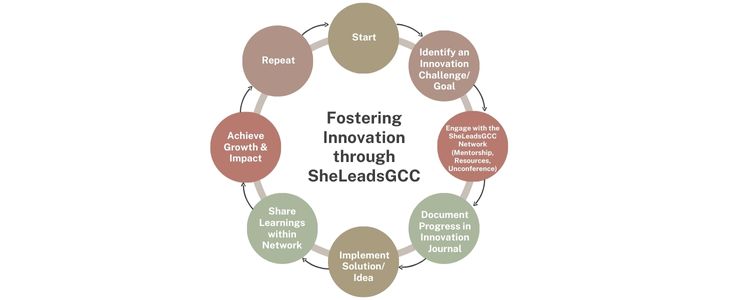
Global Capability Centres (GCCs) are an important hub in India-led solutions to global innovation and economic revitalisation. There are more than 1900 GCCs in India, which constitute around 1.2 percent of the national GDP and employ a workforce of more than 1.9 million professionals, which is expected to grow to 2 million by 2025. This growth is in support of the economic benefits, which are enormous: new growth in foreign direct investment and high-skilled pools. Most importantly, the inclusion of leadership styles of women entrepreneurs as innovators remains the ultimate key in harnessing the potential of this emerging industry, as well as adding additional strength to the economic prowess of India. The idea of females leading GCCs comes to the scene because it focuses on developing the women innovators into the future of GCCs. In the vibrant ecosystem of Indian GCCs, women leaders are not just the players, but they are the storytellers of the success. Each day has become an intrigue of creativity, resetting, and teamwork.
Take the example of Priya, who is the lead data scientist in a leading GCC in Noida, in the middle stage of her career. Most of her mornings start with the seeding of a new analytical methodology for a new industry report that came out indicating a 15 percent rise in the AI driven insights. This embryo of the idea is the center of her interaction during her first-time teamwork, which depicts how innovative ideation leads to innovation in GCCs.
On the other side of the floor is long-time programme director Lakshmi, who is on a complex cross-functional project, and the teams are spread in three locations in the world. The real critical issue lies with respect to data integration policies. Using her ability to read between the lines of cultural differences and her sensitivity to meaningful leadership, Lakshmi has a virtual thing known as an innovation huddle, where different minds can enter and their voices unite in achieving a single solution. This is a demonstration of how important senior women leaders are in achieving synergistic cooperation in multinational GCC organisations.
In the case of Ananya, a young software engineer who joined a GCC recently and will serve as a growth experience supported by the network called the SheLeadsGCC. This approach exhibits a networked roundedness, as after attending a webinar where a senior woman executive discussed her experience in patent filing, an area of interest that Ananya has, she identifies and finds a mentor within the network. The exchange of this interaction is invaluable, and it is illustrative of the network as the agent of professional growth and the opening of new horizons to women who aspire to be innovators in this world.
As a way to empower women innovators more, “SheLeadsGCC” promotes the practical and resource-oriented approach, going beyond the traditional career advice.
The aim of SheLeadsGCC is to see a future where the role of women ceases to be a side note in the history of the GCC success story in India but instead has become part and parcel of that success story. Our firm belief is that we must alter the design of success metrics to essentially include the development of innovative cultures, the creation of ecosystems of collaboration, and the empowerment of talent through proactive means, especially among women. It can only be a welcome to all women in Indian GCCs to come onto this vibrant network to share, to share their point of view, and together build the future of this very essential industry. The evidence has existed that companies led by diverse leadership are more likely to be profitable. Our efforts in the enhancement of the female leadership of the future in GCCs not only lead to gender equity but also work directly towards India maintaining the post of economic ascendancy within the global arena. It is time that women take over and lead and innovate in Global Capability Centres within India.
The fate of the Indian Global Capability Centres would be unattainable without mentioning the tales of its women inventors. Now that this industry is growing, it is through the strategic development of diverse and inclusive leadership that will epitomise its new era of growth. Inductus GCC focuses on encouraging women to work in the Global Capability Centre (GCC) industry and takes steps to make women more involved in this sphere. The company is following through on this commitment with the realisation that gender diversity is not just an equity issue but also an excellent business enabler for innovation.
The foundational support under which this growth is made possible is found in Inductus GCC. Recent statistics indicate that the proportion of women in Indian GCCs has been on the rise continuously, and women are currently holding more than 35 percent of the numbers in the workforce. A vast majority of GCCs expect to see more than a 50 percent rise in the number of women employed by 2030 with cities in India such as Delhi/NCR being on the front line. Inductus also goes out in contributing to this trend by availing services that aid companies in attracting, retaining, and promoting diverse talent. This commitment is reflected in the manner in which they facilitate essential elements in the GCC ecosystem: Inductus GCC acknowledges the importance of the network in developing a new generation of women leadership. Empowering this community, Inductus will build a cycle of talent and inspiration in which older women teach younger women, and thus, they enhance the advances in this sector. In case your organisation is dedicated to improving the female employees in your GCC workforce and allowing them to drive change through innovation, then you require a faithful partner that has a history of success. Inductus GCC provides its services capable of assisting in designing and effectively running diversity and inclusion programs. Whether preparing specific skill-based roadmaps or developing strategic approaches to making your culture more inclusive, Inductus has the capabilities to make your GCC not only operationally efficient but also a real leader in gender diversity.
It is shifting away from ad hoc and reactive ways of fixing things (jugaad) to repeatable, systematic innovation systems that can create large-scale, patentable IP and create enterprise value over time. Popular paradigms are Banking and financial services (BFSI), E-commerce and retail, Pharma and Life Sciences, Automotive & Mobility, ESG and climate tech. It is through domain and digital convergence that these sectors are generating new value. The important innovation KPIs are Structured innovation will be fundamental to generating IP that will belong to the world in the form of India-for-world, given India is turning into a deep-tech talent pool and GCCs are developing into digital competency hubs. This does not only place Indian GCCs as support engines but also as strategic backbones of global product leader makers. Aditi, with a strong background in forensic science and biotechnology, brings an innovative scientific perspective to her work. Her expertise spans research, analytics, and strategic advisory in consulting and GCC environments. She has published numerous research papers and articles. A versatile writer in both technical and creative domains, Aditi excels at translating complex subjects into compelling insights. Which she aligns seamlessly with consulting, advisory domain, and GCC operations. Her ability to bridge science, business, and storytelling positions her as a strategic thinker who can drive data-informed decision-making.
The Innovator Spark
The Furnace of Union
Network Effect and Beyond
GCC Toolkit: More than the Resume
Toolkit Element
Description
Benefit
Innovation Journal
A dedicated space (digital or physical) to document ideas, challenges, solutions, and key learnings.
Fosters reflective practice, tracks innovation journeys, and aids in identifying patterns and growth areas.
“Unconference” Guide
A framework for self-organised, participant-driven meetings within GCC teams to address emergent topics.
Encourages bottom-up innovation, empowers individuals to lead discussions, and fosters a collaborative spirit.
Mentor Matchmaking
A peer-to-peer connection model based on specific , short-term needs and expertise.
Provides targeted guidance, facilitates knowledge sharing, and builds a supportive community.

SheLeadsGCC Manifesto
Conclusion
frequently asked questions (FAQs)

Aditi
Hey, like this? Why not share it with a buddy?
Related Posts
Recent Blog / Post
- Agile Methodologies for GCCs: A Blueprint for Success October 6, 2025
- The Legal and Compliance Checklist for a New GCC Setup October 4, 2025
- The Rise of Niche GCCs: A Focus on Specialised Capabilities October 4, 2025
- The Impact of Regulatory Changes on GCC Operations October 4, 2025
- Cybersecurity for GCCs: A Proactive Approach to Data Protection September 30, 2025
- Beyond Cost: Measuring the True ROI of Your GCC Investment September 29, 2025
- The Future of GCCs in the Retail Sector: A Strategic Playbook September 29, 2025
- David vs Goliath: Mid-Sized GCCs Quietly Outperform the Big Brands September 29, 2025
- Infineon’s Big Bet on India: Inside Its First GCC in GIFT City September 29, 2025
- From Campuses to Capability Centres: How Indian Universities Power the Global GCC Ecosystem September 29, 2025
- Retail Meets Digital: Costco’s GCC in Hyderabad Marks a Global Shift September 29, 2025
- The Silent Crisis: Why Many GCCs Plateau After 3 Years and How to Avoid It September 24, 2025
- Germany’s New Skilled Immigration Act and Its Ripple Effect on the GCC Talent Model September 24, 2025
- From Tokyo to Hyderabad: The Future of GCCs for Japanese Conglomerates September 23, 2025
- GCCs as AI Acceleration Hubs: Collaborating with US and Nordic Tech Majors September 19, 2025
















